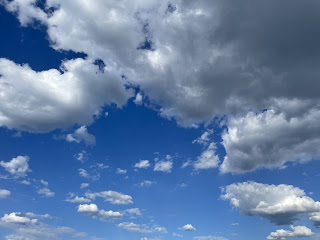In Civilization and Its Discontents, Freud spoke of an "oceanic feeling." He took the phrase from Romain Rolland who had used the term in correspondence with Freud. Freud interpreted Rolland to mean "a feeling that he [Rolland] was inclined to call a sense of ‘eternity’, a feeling of something limitless, unbounded—as it were ‘oceanic’. This feeling was a purely subjective fact, not an article of faith; no assurance of personal immortality attached to it, but it was the source of the religious energy that was seized upon by the various churches and religious systems, directed into particular channels and certainly consumed by them. On the basis of this oceanic feeling alone one was entitled to call oneself religious, even if one rejected every belief and every illusion" (Civilization and Its Discontents, chap. 1). Freud confessed never having personally experienced the "oceanic feeling" but did not doubt that others (perhaps most) have. He tried to explain it in the embryonic psychology of his day. With Rolland he agreed that the numerous religions were based in some way on this feeling.
This strikes me not unlike the Buddhist notion of the finger pointing at the moon. The moon is the oceanic feeling. Religion, through its stories, rituals and dogmas is the finger pointing to the moon. A perennial problem is that people substitute the finger for the moon—we live happily, or uneasily, with an explanation of the "oceanic feeling" rather then with its direct experience. In our explanations we claim to understand the inexplicable. In naming we lose the mystery, for to name something does not mean that we understand that thing. The "Dao that can be named is not the eternal Dao" the Laozi reminds us.
Perhaps the oceanic feeling ought to remain a mystery. Unlike Freud, I have had many's such inexplicable experiences, and interpreted the experience in a variety of ways—sometimes from within a particular religious tradition, sometimes using science. I suppose I find myself today somewhere between an easy gullibility and a deep cynicism—perhaps somewhere akin to a wondering skepticism. After all, many things that folk a few hundred years ago thought were ineluctably mysterious have been explained by careful scientific analysis. And doubtless many of today's mysteries will become tomorrow's common sense.
One way of dealing with the the mysterious has been to ascribe the mystery to the supernatural realm. If we can't understand something then it must be God, or the gods, or the spirits, or the demons, or the devil, or some combination of these. The mystery of the boy who falls to the ground and shakes uncontrollably must have been a result of spirit possession they said back when. Today we are likely to consider that the boy has epilepsy and ought to be treated with compassion and the best of medical care. This "God of the gaps" modality—acribing to the supernatural that which is unusual and without current explanation—is problematic. The more human understanding grows the smaller becomes the gap, and hence the less room for God. The divine is pushed to the margins and becomes more or less irrelevant. Is that, perhaps, the story of modernity? In the eighteenth century the deists decided God was akin to a cosmic clockmaker who builds a complex instrument, sets it going and exits stage left. For the deists, the cosmic clockmaker became redundant once nature and its natural laws were established.
One way of making sense of mystery has been the creation of binaries: material/spiritual; natural/supernatural; imminent/transcendent. Mystery we place in the spiritual, the supernatural and the transcendent, and pretend there is no mystery around the material, the natural and the imminent. As most people most of the time have few experiences of the "supernatural," the supernatural becomes practically irrelevant—the stuff of "woo-woo," an amusing and occasional distraction from the real stuff of life.
I am increasingly less comfortable with such binaries as having use in explaining things. Immanence and transcendence can both be extraordinarily oceanic—the divine within but also the divine that takes you out of yourself. The immanent as well as the transcendent can be deeply unfathomable. At the very least, the lines are blurred. Quantum physics too—which to be honest I don't truly understand—tells us that what we think of as material at a fundamental level is more like energy or waves, more like spirit and without substance (as we normally think of substance). Matter or spirit? Answers on a postcard please. I find even less meaning in the natural/supernatural binary. In the past, strange experiences were consigned to the supernatural. The more we learn of nature, of human being of and in nature, the less seems to be supernatural. But what if the unseen, too, is "natural" and not "supernatural"; even that there is no "super-nature," but rather merely and wonderfully a different facet of nature? Perhaps nature is One and the divine is an aspect of nature too. Then the oceanic feeling is quite natural.
Enjoy the mystery of it all,
+Ab. Andy
